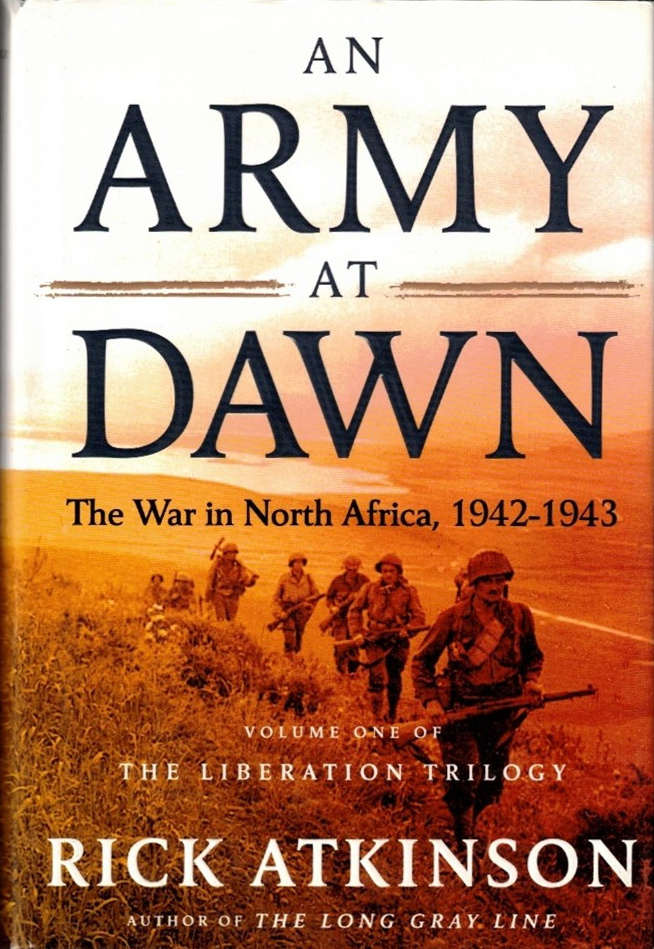Livre relié, 681 pages
Langue : English
Publié octobre 2002 par Henry Holt & Co..

Livre relié, 681 pages
Langue : English
Publié octobre 2002 par Henry Holt & Co..
The liberation of Europe and the destruction of the Third Reich is an epic story of courage and calamity, of miscalculation and enduring triumph. Now, sixty years after America joined this titanic struggle, Rick Atkinson shows why no modern reader can understand the ultimate victory of the Allied powers without a grasp of the great drama that unfolded in North Africa in 1942 and 1943.
Atkinson's narrative begins on the eve of Operation TORCH, the daring amphibious invasion of Morocco and Algeria. After three days of hard fighting against the French, American and British troops push deeper into North Africa.
But the confidence gained after several early victories soon wanes; once Allied forces engage the Germans, it becomes apparent that they have more than met their match. Casualties mount rapidly, battle plans prove ineffectual, and hope for a quick and decisive victory evaporates. The Allies -- particularly the Americans -- …
The liberation of Europe and the destruction of the Third Reich is an epic story of courage and calamity, of miscalculation and enduring triumph. Now, sixty years after America joined this titanic struggle, Rick Atkinson shows why no modern reader can understand the ultimate victory of the Allied powers without a grasp of the great drama that unfolded in North Africa in 1942 and 1943.
Atkinson's narrative begins on the eve of Operation TORCH, the daring amphibious invasion of Morocco and Algeria. After three days of hard fighting against the French, American and British troops push deeper into North Africa.
But the confidence gained after several early victories soon wanes; once Allied forces engage the Germans, it becomes apparent that they have more than met their match. Casualties mount rapidly, battle plans prove ineffectual, and hope for a quick and decisive victory evaporates. The Allies -- particularly the Americans -- discover that they are woefully unprepared to fight and win this war, in part due to lack of experience, in part due to an unwillingness to pay the necessary price in blood. North Africa then becomes a proving ground: it is here that American officers learn how to lead, here that soldiers learn how to hate, here that an entire army learns what it will take vanquish a formidable enemy.
Most of the West's great battle captains emerged in North Africa, including men whose names remain familiar generations later -- Eisenhower, Patton, Bradley, and Montgomery. Atkinson brings these commanders and others vividly to life, along with enemy generals such as Rommel and Kesselring. He also takes us right to the front lines of every major battle -- from Oran to Kasserine to Tunis -- and his gripping accounts of soldiers fighting and dying makes the war horrifyingly real. Gradually, we come to understand the profound accomplishments of this bloody campaign. In North Africa, the Allied coalition came into its own, the enemy forever lost the initiative, and the United States -- for the first time -- began to act like a great power.
Even as he weaves a compelling narrative of a heroic victory, Atkinson casts a clear eye on the dark tragedies that haunt every war. The first volume of the Liberation Trilogy, An Army At Dawn is history of the highest order -- brilliantly researched, rich with new material and surprising insights, the deeply human story of a monumental battle for the future of civilization.